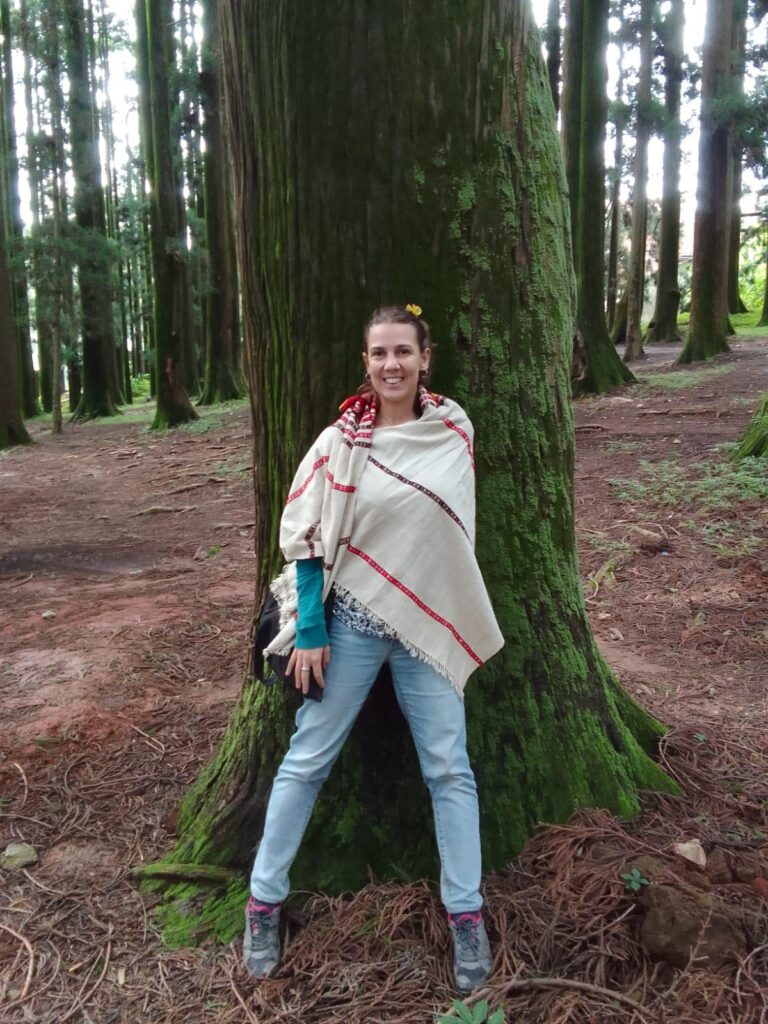Eleonora: research as a journey
I am a researcher currently interested both in the environmental justice dimension of biodiversity conservation, and the challenges and opportunities posed by ecological transitions in Europe —critically examining dominant “greening” narratives to uncover both their transformative potential and their pitfalls. I am member of the Direction Board of the Environmental Justice Atlas (EJAtlas) and an honorary member of the ICCA Consortium.

Life is a journey, as we often say. For me, being a researcher is a way to navigate that journey—to give meaning to my curiosity and to explore my concerns about a world shaped by injustice and inequality. I discovered political ecology while walking through a forest with a group of women from the Tharu Indigenous community, in India. They were struggling for recognition of their forest rights, as they faced the threat of displacement due to the planned expansion of a national park in the Uttarakhand state. Their pain—and their joy, expressed in a dance around a tree of hope—taught me something about resilience, struggle, and justice. World which I used in my academic research, but which are constantly borrowed from the lived experience of the people we study and learn from.
I recently finished my PhD journey, where I engaged with the concepts of conservation justice, violence and security. Before my PhD journey, India was my home for nearly 10 years. In those years previous to my academic research, India taught me and showed me the crude reality of the capitalist system, where a rich shopping mall goes hand in hand with a poor beggar in the street. It gave me the opportunity to understand some of the hidden side of green conservation policies, which are constantly erasing the rights of the most marginalized people, without really solving any climate problem. I aimed for my research to support the processes of struggle and eco-social transformation. However, while I continue this research journey, I sometimes ask myself what does it mean to be a political ecologist researcher?
In times of crisis—when the COVID-19 pandemic, rather than bringing us together, left us more greedy and individualistic than before, and with multiple wars looming—it becomes difficult to hold on to hope for meaningful change. In my research on conservation justice, I witness daily the darker side of the so-called “green transition”. The 30×30 policy, the nature-based solutions mantra, the countless COP meetings with no bold action, and the speculation around green economies often leave me feeling there is little hope for true transformation.
Yet, being part of a political ecology network reminds me of how many of us are out there—how many believe in and fight for change. In moments of hopelessness, I remember the tree of hope and the women dancing around it, even in times of tragedy. Moved by a feminist vision, I believe we are part of an interconnected world, where every action we take—toward ourselves, others, or the environment— will eventually shape, affect, and impact others. As sociologist Maria Paz Aedo said: “it does not matter where we reach, and how far we reach, what is important is that we keep going, guided by care, reciprocity, and solidarity”.
From India to Europe, I am now engaged to not only study movements and struggles, but being part of those. Back to my land, I continue to study and engage with those movements that are imagining a better world. Being a political ecologist gives me the privilege of looking at the world from a justice perspective.